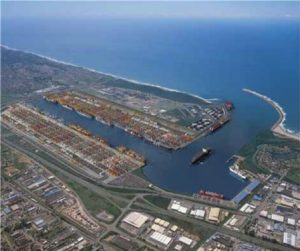- The Council for Scientific and Industrial Research (CSIR) is a leading scientific and technology research organisation that researches, develops, localises and diffuses technologies to accelerate socioeconomic prosperity in South Africa.
- The organisation’s work contributes to industrial development and supports a capable state.
- The organisation has been appointed by South African National Energy Development Institute (SANEDI) to conduct a Strategic Environmental Assessment (SEA) for the Boegoebaai Port, Special Economic Zone (SEZ) and Namakwa Region in the Northern Cape.
The 18 to 24-month study is a collaborative effort involving the Northern Cape Economic Development, Trade and Investment Promotion Agency (NCEDA) and Transnet National Ports Authority. It aims to investigate opportunities and constraints in developing the port and SEZ. This is all to support the international development of a green hydrogen economy and the global need to defossilise energy generation. The SEA will focus on the following two areas:
- At a local scale: adopting Utilising a multi-scale approach, the SEA will address the sustainability aspects of the proposed port and SEZ development, covering an area of approximately 33 500 hectares.
- At a regional scale: the SEA will address sustainability issues associated with the Northern Cape green hydrogen economy for the Namakwa area.

Rendering of port development in Boegoebaai, Northern Cape. Image credit: TNPA
The CSIR has extensive experience in conducting SEAs, having completed more than 50 SEAs dating back to the early 1990s. “We have experience from conducting SEAs for ports and special economic zones, such as those at Coega and Saldanha. Additionally, we bring recent learning from conducting a programme of SEAs for the national government in support of the Strategic Integrated Projects over the past 11 years, covering areas like renewable energy, electricity transmission corridors and gas pipeline corridors,” says Paul Lochner, manager of the CSIR Environmental Management Services research group.
Author: Bryan Groenendaal















